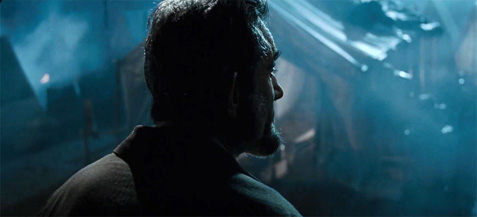The 400-Word Review: Lincoln
By Sean Collier
November 16, 2012
BoxOfficeProphets.com

Lincoln, adapted loosely from Doris Kearns Goodwin’s acclaimed book Team of Rivals, follows the president as he battles in Congress for an amendment abolishing slavery, his best attempt at an end to the Civil War. While that conflict hangs its shadow over the film, we are removed from the battlefield; instead, we navigate both the high and low areas of Washington as Lincoln attempts to cobble together the support needed for his amendment.
The production is masterful and enchanting, and just about any below-the-line Oscar that Lincoln picks up will be well-earned. But the bulk of the credit goes to the performers. Daniel Day-Lewis’ great emancipator is tired, curious and almost timid; the blend of brilliance and folksy wisdom he installs in Lincoln is unique and savvy. It is a performance that can and should be remembered as career-defining (even in an already packed career.)
It was expected, though, that Day-Lewis would be excellent; the pleasant surprise in Lincoln is the rest of the ensemble, all nearly as impressive. Sally Field has the tallest order, in making the obstinate and unstable Mary Todd Lincoln relatable; she succeeds, to say the least. Joseph Gordon-Levitt’s Robert Todd Lincoln is underwritten, but often stirring. David Strathairn steals scenes as William Seward. Jackie Earle Haley is captivating as Confederate VP Alexander Stephens; Jared Harris shows his range as Ulysses S. Grant. James Spader, John Hawkes, Hal Holbrook and David Costabile all attract attention as well.
And Tommy Lee Jones, as contentious Thaddeus Stevens, gives a performance to rival — or eclipse — any he’s ever offered.
The stellar cast keeps Lincoln from ever bogging down, despite its hefty running time. Without a cast of sharpshooting character actors like this, the political machinations in Lincoln could have been cumbersome; with them, it’s a triumph. (Tony Kushner’s deft and funny handling of the material certainly helps out, as well.) This take on Lincoln is undoubtedly an entertainment, rather than a history; while that will not impress those in search of the facts, it is ultimately to the film’s credit.